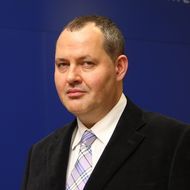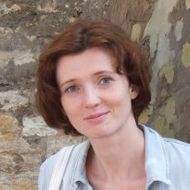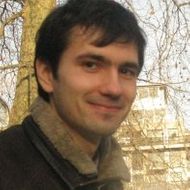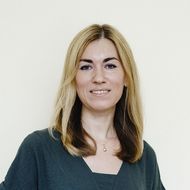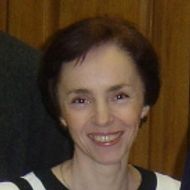- A
- A
- A
- ABC
- ABC
- ABC
- А
- А
- А
- А
- А
- HSE University
- Faculties
- Faculty of Economic Sciences
- Events
- FES International Research Seminar Series with Assistant Professor Kemal Yildiz, Bilkent University, Turkey
-
Departments
- Departments
-
Institutes and Centres
-
- Institute of Economics and Utility Regulation
- Institute for Industrial and Market Studies
- Centre for Labour Market Studies
- International Centre of Decision Choice and Analysis
- Centre of Development Institute
- Centre for Financial Research & Data Analytics
- Economic Statistics Centre of Excellence
- Anti-Corruption Centre
-
-
Laboratories
-
- International Laboratory for Macroeconomic Analysis
- International Laboratory of Stochastic Analysis and its Applications
- International Laboratory for Experimental and Behavioural Economics
- Corporate Finance Center
- Laboratory for Banking Studies
- Laboratory for Labour Market Studies
- Laboratory for Sport Studies
- Laboratory for Wealth Measurement
- Project Laboratory for Development of Intellectual Competitions in Economics
- Laboratory for Spatial Econometric Modeling of Socio-Economic Processes in Russia
-
- Department of Financial Market Infrastructure
- ICEF
-
Educational Programmes
- Bachelor's Programmes
-
Master's Programmes
-
- Economics and Economic Policy
- Agrarian Economics
- Stochastic Modeling in Economics and Finance (Previously, Master's in Statistical Modelling and Actuarial Science)
- Statistical Analysis in Economics
- Economic Analysis (Online)
- Strategic Corporate Finance
- Financial Markets and Institutions
- Corporate Finance
- Financial Engineering
- Master of Business Analytics (Online)
- Investments in Financial Markets (Online)
-
- Doctoral Programmes
-
Faculty
109028, Moscow,
11 Pokrovsky Boulevard,
Room Т-614
Phone: (495) 628-83-68
email: fes@hse.ru
Founded in 1992, the HSE Faculty of Economics is the university’s oldest faculty. In the years since it was founded, it has gained a reputation as Russia’s leader in terms of higher economic education.
A fundamental education in modern economic theory and mathematics is combined with the study of applied disciplines, such as taxation, budget policies and processes, financial management and other related fields.
In press
Applied Econometrics. 2024.
In press
In bk.: Oxford Research Encyclopedia of Economics and Finance. Oxford University Press, 2024.
Dagaev D., Paklina S., Parshakov P.
Social Science Research Network. Social Science Research Network. SSRN, 2024

FES International Research Seminar Series with Assistant Professor Kemal Yildiz, Bilkent University, Turkey
Our first speaker in the FES International Seminar Series this academic year is Kemal Yıldız, who is an Assistant Professor of Economics at Bilkent University in Ankara. His research interests span over several theory fields such as game theory, choice theory, mechanism design, matching theory and bounded rationality. His publications appeared in Journal of Economic Theory, Games and Economic Behavior, Theoretical Economics.
Speaker: Kemal Yıldız, Bilkent University
Title: Choice through a unified lens: The prudential model (with Serhat Dogan)
Abstract: We present a new choice model. An agent is endowed with two sets of preferences: pro-preferences and con-preferences. For each choice set, if an alternative is the top-ranked for a pro-preference (con-preference), then this is a pro (con) for choosing that alternative. The alternative with more pros than cons is chosen from each choice set. Each preference may have a weight reflecting its salience. In this case, the probability that an alternative is chosen equals the difference between the weights of its pros and cons. We show that this model provides a unified lens through which every nuance of the rich human choice behavior can be structurally explained.
Date: September 16, 2019 (Monday)
Time: 13:40-15:00
Venue: Pokrovka campus, room T510 (109028, Moscow, Pokrovsky Boulevard 11)
For external participants: to order the pass, please contact Disa Malbakhova dmalbakhova@hse.ru
- About
- About
- Key Figures & Facts
- Faculties & Departments
- International Partnerships
- Faculty & Staff
- HSE Buildings
- Public Enquiries
- Studies
- Admissions
- Programme Catalogue
- Undergraduate
- Graduate
- Exchange Programmes
- Summer University
- Summer Schools
- Semester in Moscow
- Business Internship
-
https://elearning.hse.ru/en/mooc/
Massive Open Online Courses
-
https://www.hse.ru/en/visual/
HSE Site for the Visually Impaired
-
http://5top100.com/
Russian Academic Excellence Project 5-100
- © HSE University 1993–2024 Contacts Copyright Privacy Policy Site Map
- Edit
